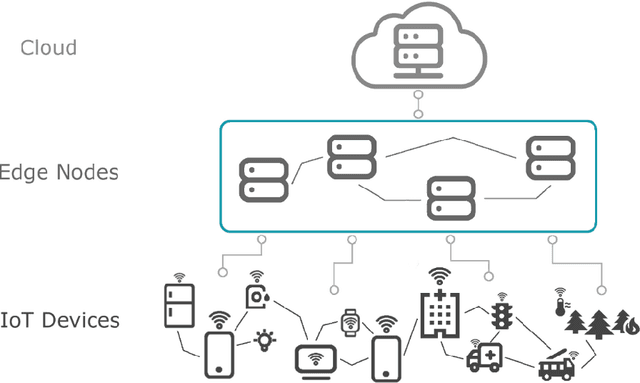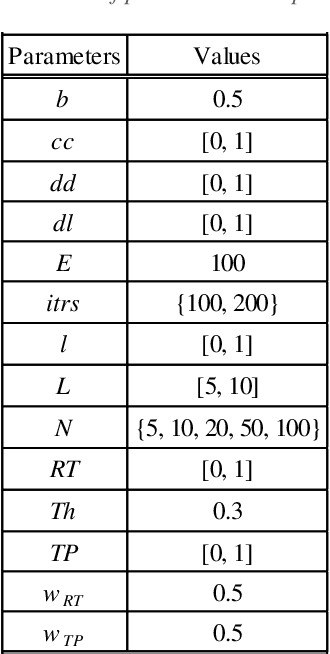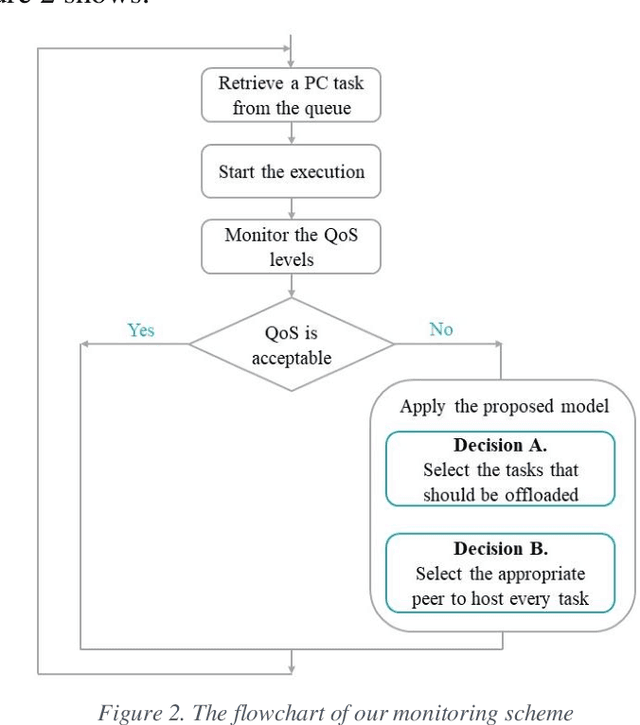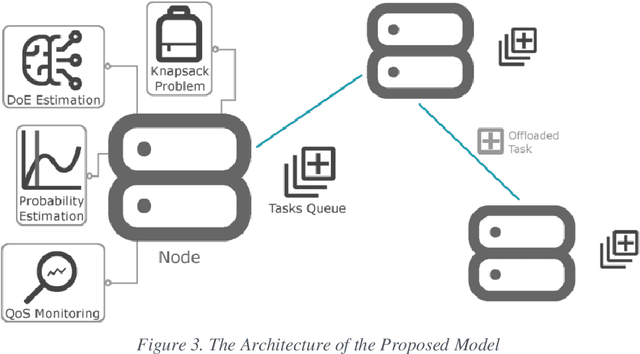Georgios Boulougaris
An Ensemble Scheme for Proactive Dominant Data Migration of Pervasive Tasks at the Edge
Oct 12, 2024Abstract:Nowadays, a significant focus within the research community on the intelligent management of data at the confluence of the Internet of Things (IoT) and Edge Computing (EC) is observed. In this manuscript, we propose a scheme to be implemented by autonomous edge nodes concerning their identifications of the appropriate data to be migrated to particular locations within the infrastructure, thereby facilitating the effective processing of requests. Our objective is to equip nodes with the capability to comprehend the access patterns relating to offloaded data-driven tasks and to predict which data ought to be returned to the original nodes associated with those tasks. It is evident that these tasks depend on the processing of data that is absent from the original hosting nodes, thereby underscoring the essential data assets that necessitate access. To infer these data intervals, we utilize an ensemble approach that integrates a statistically oriented model and a machine learning framework. As a result, we are able to identify the dominant data assets in addition to detecting the density of the requests. A detailed analysis of the suggested method is provided by presenting the related formulations, which is also assessed and compared with models found in the relevant literature.
Monitoring and Proactive Management of QoS Levels in Pervasive Applications
Jun 11, 2022



Abstract:The advent of Edge Computing (EC) as a promising paradigm that provides multiple computation and analytics capabilities close to data sources opens new pathways for novel applications. Nonetheless, the limited computational capabilities of EC nodes and the expectation of ensuring high levels of QoS during tasks execution impose strict requirements for innovative management approaches. Motivated by the need of maintaining a minimum level of QoS during EC nodes functioning, we elaborate a distributed and intelligent decision-making approach for tasks scheduling. Our aim is to enhance the behavior of EC nodes making them capable of securing high QoS levels. We propose that nodes continuously monitor QoS levels and systematically evaluate the probability of violating them to proactively decide some tasks to be offloaded to peer nodes or Cloud. We present, describe and evaluate the proposed scheme through multiple experimental scenarios revealing its performance and the benefits of the envisioned monitoring mechanism when serving processing requests in very dynamic environments like the EC.
 Add to Chrome
Add to Chrome Add to Firefox
Add to Firefox Add to Edge
Add to Edge